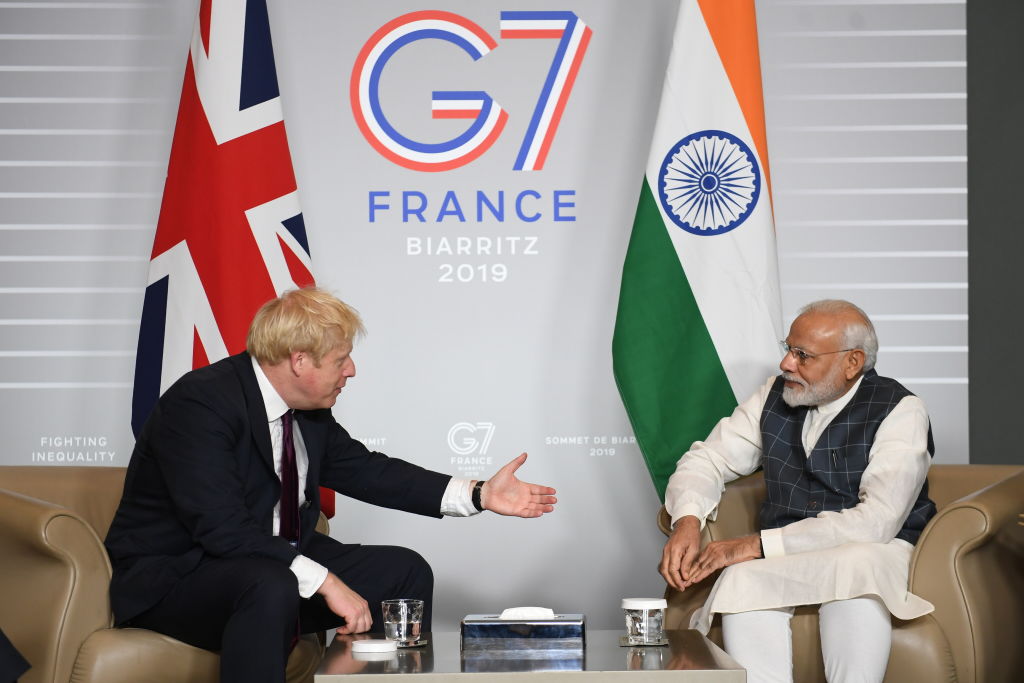Britain’s departure from the EU presents an exciting opportunity to build on old alliances around the world. Nowhere is this more true than in the UK’s relationship with our old Indian friends.
India was preparing to roll out the red carpet for Boris Johnson this week. Being India’s annual guest of honour at their Republic Day celebrations is equivalent to the Buckingham Palace treatment or the Bastille Day invitation. Soldiers on double-humped camels, anti-satellite weapon systems on display and giant papier-mâché tableaux tributes to Mahatma Gandhi parade down New Delhi’s ceremonial boulevard that was once lined by statues of Britain’s kings and viceroys.
Boris is only the second UK Prime Minister since India won its independence to have the honour extended to him after John Major in 1993. Unfortunately, though, the pandemic – and the recent spike in infections in Britain – put paid to Boris’s trip.
But while Boris has been unable to travel, Indian prime minister Narendra Modi’s offer of his most prestigious diplomatic invitation to Britain is revealing and shows whose side he is on. Modi knows that the legacy of both himself and Boris are likely to be shaped by the rise of an aggressive China and the speed of their post-pandemic economic recoveries. They will need each other’s support.
Boris Johnson and Narendra Modi also have a fair amount in common. They both lead right-wing parties that have turned their respective political systems upside down, through Brexit and Hindu nationalism respectively. They have thumping parliamentary majorities and no plans to vacate office. The UK Prime Minister has a personal link with the subcontinent and describes himself as the ‘son-in-law’ of an Indian. His half-Indian second ex-wife, Marina Wheeler, has also recently published an enjoyable book about her Punjabi mother, Dip.
This trip to India would have been the Prime Minister’s first major bilateral visit since taking office eighteen months ago. But Covid-19 has halted the face-to-face diplomacy required to bolster trade at a time when it is most needed. The UK’s economic recovery will be difficult, and the loosening of economic ties between the EU and the UK means that it needs new friends. It is entirely sensible to look to India, the second most populous country in the world, to plug that gap.
As for Boris, he has returned the favour by inviting Narendra Modi to the G7 summit in Cornwall this summer. South Korea and Australia have also been invited as guests in an attempt to form a new democratic, anti-China bloc. If the prophecy of a great lockdown easing is to be believed, this summer the UK is set to be the epicentre of global diplomacy as we play host to the G7 and the COP26 which are both expected to be held in-person. This will be good news for both Britain and India as they seek to undo the damage wrecked by the pandemic.
Foreign Secretary Dominic Raab managed a sneaky official visit to India days before Christmas to hash out details of a ten-year roadmap for India-UK relations. But it will take a trip from Boris to really kick start the new, old alliance between India and Britain. When will this take place? For now, it’s anyone’s guess. But a turban-wearing Boris decorated in yellow garlands and adorned with a large red dot of turmeric on his forehead will be a welcome sight.






Comments